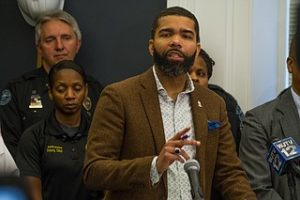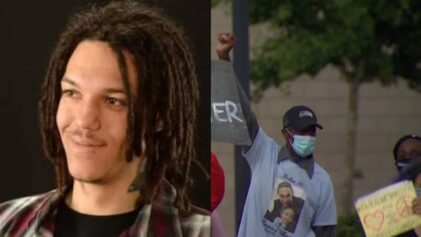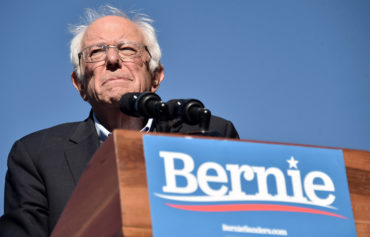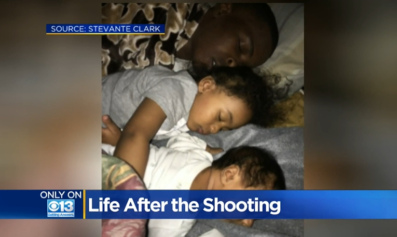
Mayor Chokwe Antar Lumumba’s executiveorder would also ban the release of mugshots featuring children charged as adults. (Photo by Stephen Wilson)
Chokwe Antar Lumumba, the mayor of Jackson, Miss., signed an executive Monday, Feb. 26, to block the city police department from releasing the mugshots of juvenile offenders, as well as those of folks involved in officer-involved shootings.
According to the Jackson Free Press, the move comes two months after the Jackson Police Department released what appeared to be a mugshot of Crystalline Barnes, who was shot during a traffic-stop altercation with officers in January. Authorities fired shots into Barnes’ car, killing her.
The department has declined to release the name of the officer who shot her, however.
“Mugshots and sensationalized news narratives create lasting impressions that adversely impact communities and widen the historic divide between police and community,” Lumumba said at City Hall press conference this week.
While the JPD won’t disseminate mugshots, the mayor said officers may use other images of people who have been involved in officer-related shootings, according to the newspaper.
“The last image of any person should not be on the worst day of their life or the worst image that we could possibly provide of them,” Lumumba said Monday. “In a day and age, when we have accessibility to images of individuals through social media and everything else, we can go the extra mile to find an image that gives respect to those individuals that are no longer living on this earth.”
The mayor’s ban on juvenile mugshots will also include those of children charged as adults, a major policy shift for the department. As recently as late February, JPD shared the mugshot of a 14-year-old girl charged with capital murder. The child was in police custody by the time the photo was released, the Free Press reported.
Through his order, Lumumba’s hopes to put a stop to the practice going forward. It will do little to change the department’s reluctance to release the names of officers who fire their weapons, however.
“Jackson’s people and its police force have a unique relationship that is underscored by our connection to each other as human beings and our commitment to making Jackson a better place,” he said. “We owe it to ourselves to shift the paradigm around violence and crime while simultaneously engaging and building relationships, examining updating and creating policies that allow us to humanize individuals and foster systemic transformation.”


